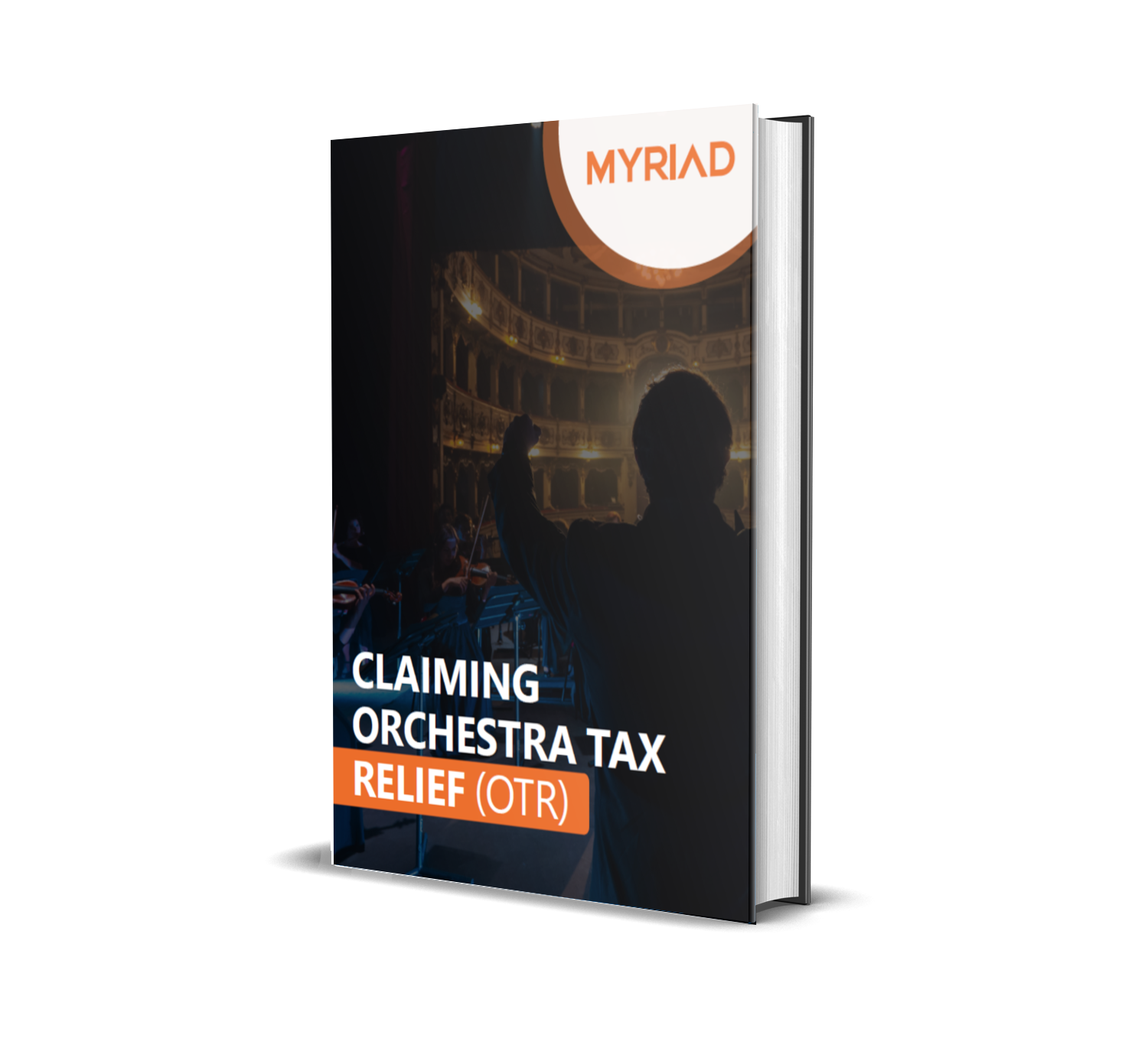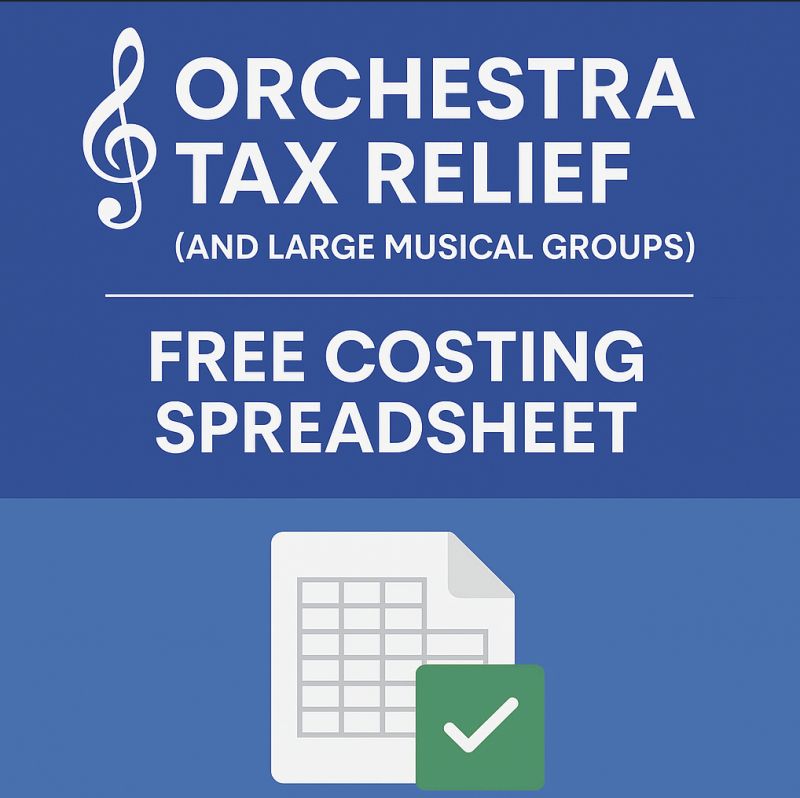Orchestra Tax Relief (OTR) is the UK's government prime funding mechanism to support orchestral production costs. Financial support amounting to 40% of the core expenditure of the concert or series up to performance can be claimed.

Orchestra Tax Relief (OTR) is a creative industry tax relief incentive, supported by the UK government, to encourage the creation of orchestral concerts.
OTR offers Orchestra Production Companies (OPCs) a tax rebate against the money spent on producing an orchestral concert.
This scheme has some of the highest relief rates for creative industries and encourages cultural investment in the public arts.


Orchestra Tax Relief is worth up to 40% of the core production costs of the piece. OPCs can claim OTR on the lower of:
If the company is profitable, the tax relief can be used to reduce a Corporation Tax bill. If the OPC is loss-making, claimants can receive a cash payment from HMRC.
The current cash credit rate is 50%, going down to 45% from 1 April 2025. This means companies can get back up to 40% of their costs in cash!
From 1 April 2024, a UK expenditure requirement replaces the European requirement.
An OPC must meet the following criteria to claim OTR:
Check out our FAQs for more details on what does and doesn’t qualify.


You can claim on expenditure for producing the concert or series up to the first performance, as well as travel to and from a venue which is not the usual venue of the company.
However, the costs of running the performance(s) are not eligible. For example, the costs of staff and performers during the running of the performances cannot be included.
You may claim a series of performances in a single claim if a letter of intention is submitted to HMRC before the first performance.
In our latest OTR eBook, we explain how you can make the most of this valuable government programme.
This free eBook, created by Myriad’s expert team, provides clear, expert guidance on how to claim OTR and secure your entitlement.


Simplify your Orchestra Tax Relief (OTR) claim with Myriad’s OTR costing by trade spreadsheet. A powerful, structured template designed to help you satisfy HMRC cost reporting requirements.
Orchestra Tax Relief is claimed by the production company for each accounting period through your Corporation Tax Return (CT600).
The tax return must also be accompanied by the required supplementary information, including venues used and an Additional Information Form. You must provide a statement of core expenditure broken down by category and UK and non-UK spending.
You'll need to calculate if the concert has made a profit or loss to determine whether any loss can be surrendered for a cash tax credit or used to reduce your tax bill.
HMRC has a specific approach for calculating an orchestra production trade's taxable profit or loss.

You can claim orchestra tax relief on your concert/performance if:
If you are applying for a series of concerts, in addition to the above requirements, they will qualify if:
A production may meet the requirements above, but still be ineligible for OTR if it meets any of the following conditions:
Recorded performances are ineligible for OTR but may find that they are eligible for Film Tax Relief or AVEC. However, performances may be eligible for OTR if the recording is not the primary purpose of the show.
If the production begins with the intention to be shown to a paying audience, but the intention changes to broadcast without an audience, the OPC can claim OTR up to the point that the intention changes.
Core expenditure is expenditure incurred on producing the concert up to the performance and any travel to and from a venue that is not the usual venue of the company.
Non-core expenditure typically relates to the running and promotional costs for the show. This includes:
Certain costs may need to be apportioned between rehearsals and the performance itself.
Ineligible expenditures include entertaining, publicity, promotion, audit fees, interest, completion bonds and other forms of insurance.
There is no cap on the amount of relief available via Orchestra Tax Relief.
A production may meet the requirements above, but still be ineligible for OTR if it meets any of the following conditions:
Core expenditure must be apportioned on a “fair and reasonable basis". There are multiple ways you can define this, depending on the cost. You may wish to explain your methodology to HMRC to ensure you meet this criterion.
As with core and non-core expenditure, you will need to apportion UK/EEA and non-UK/EEA expenditure. Workers based in a UK/EEA office or working remotely in the UK/EEA can be included, for example, but workers physically outside of the UK/EEA are ineligible. This applies regardless of where the company is based, the worker’s nationality or whether the company is in a group with the claimant.
For some costs that are partly based in the UK/EEA, you can choose how to apportion the cost. For example, a staff member who works partly in the UK/EEA will only be eligible for the number of days they are working there.
For accounting periods beginning before 1 April 2024, you may make your claim up to one year after the company’s filing date.
For accounting periods beginning on or after 1 April 2024, you may make your claim up to 2 years after the end of the period of account.